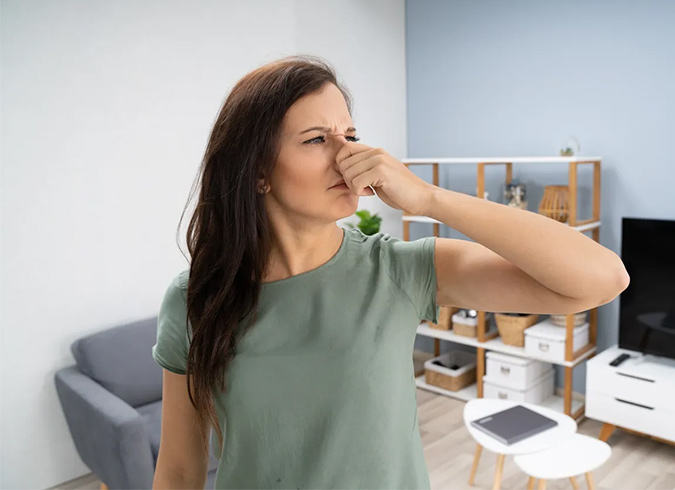- Condensation on windows and vents, especially in the winter months
- Visible mold & mildew
- Cupping wood floors
- An uncomfortable cold, clammy feel
- Chronic allergy-like symptoms
- Respiratory issues
To eliminate mold, you have to get at the root of the problem – moisture. Mold remediation will remove the mold, but it will not prevent it from growing back. The best way to prevent mold and eliminate the hazards is through controlling the indoor environment, keeping indoor relative humidity at safe levels, between 40%-50%. Below 60% relative humidity, mold cannot survive. The best way to control excess moisture is through dehumidification. In addition to preventing mold, eliminating musty odors, and providing superior indoor air quality, dehumidification provides comfort and energy savings. A drier environment is naturally cooler, and less draw is demanded of your AC. According to the US Department of Energy, for every degree you raise your thermostat in the summer, you can save up to 3% in energy costs. Southern Climate Solutions provides permanent dehumidification solutions to eliminate excess moisture and the hazards it creates, keeping your home and family healthy and safe. Serving the Greater Gulf Coast for 20-years, we have 100% happy customers. We have solutions for residential and commercial structures. Our assessments are always free! For more information on creating a healthy home, visit www.southernclimatesolutions.com.


